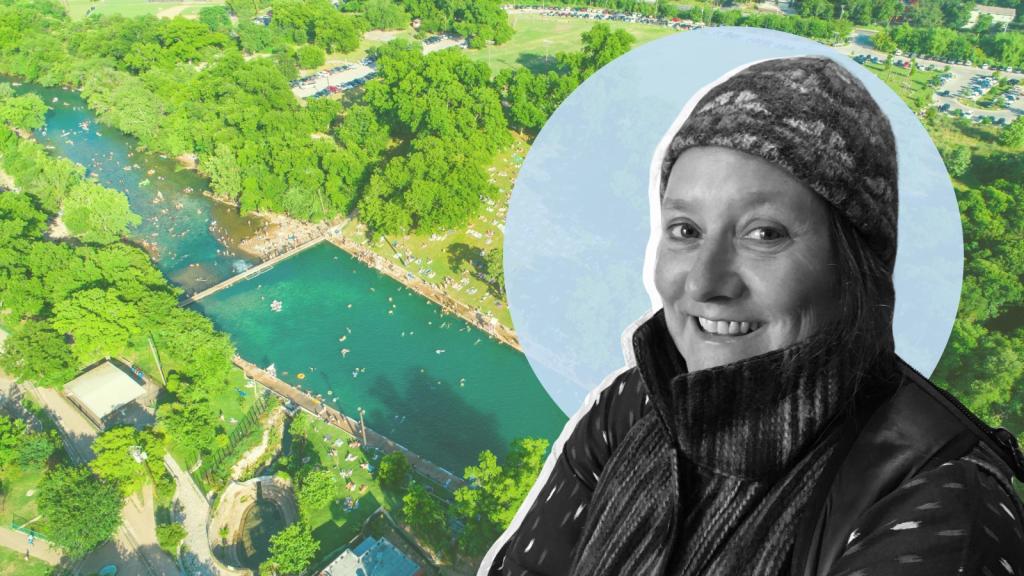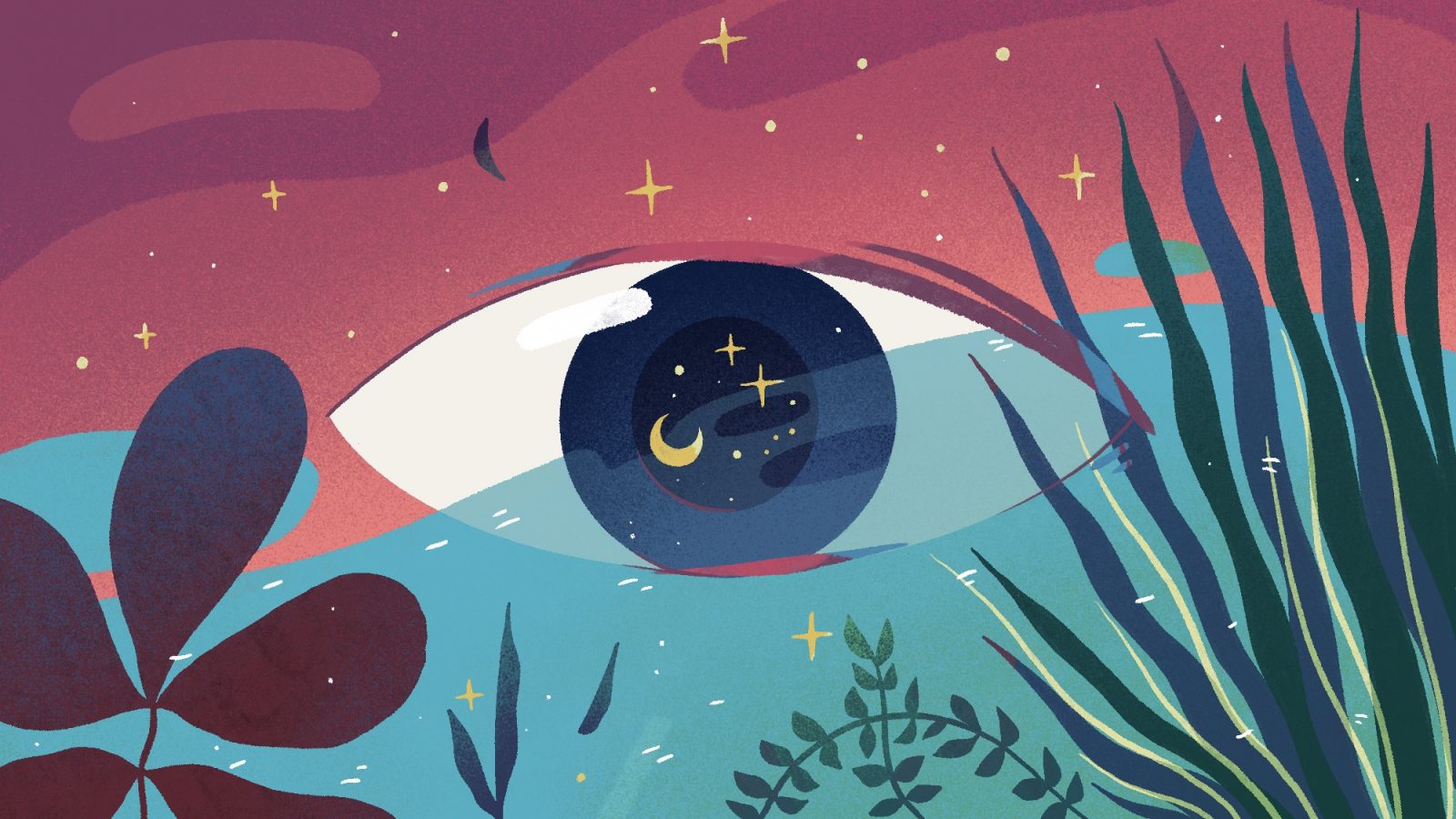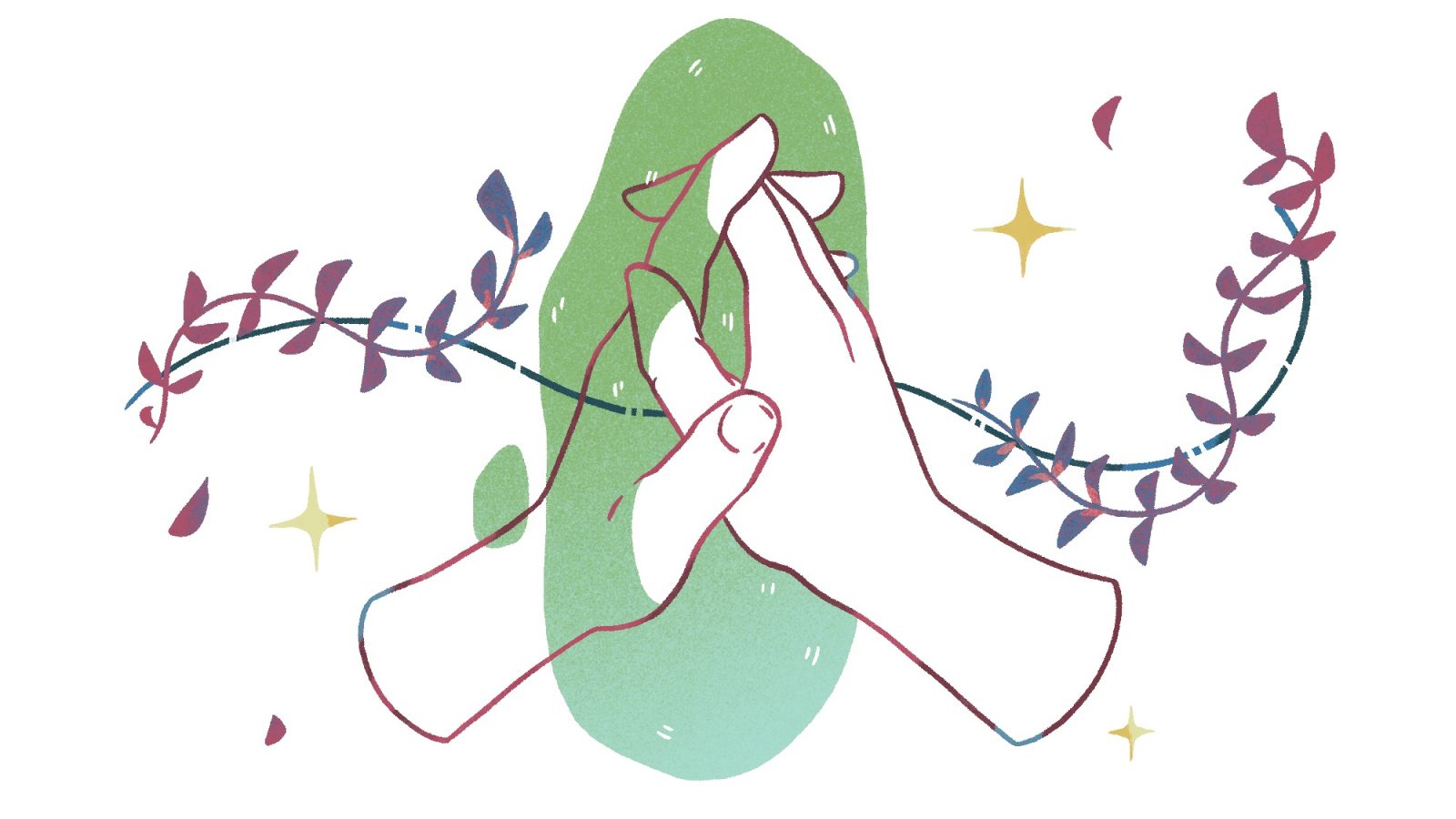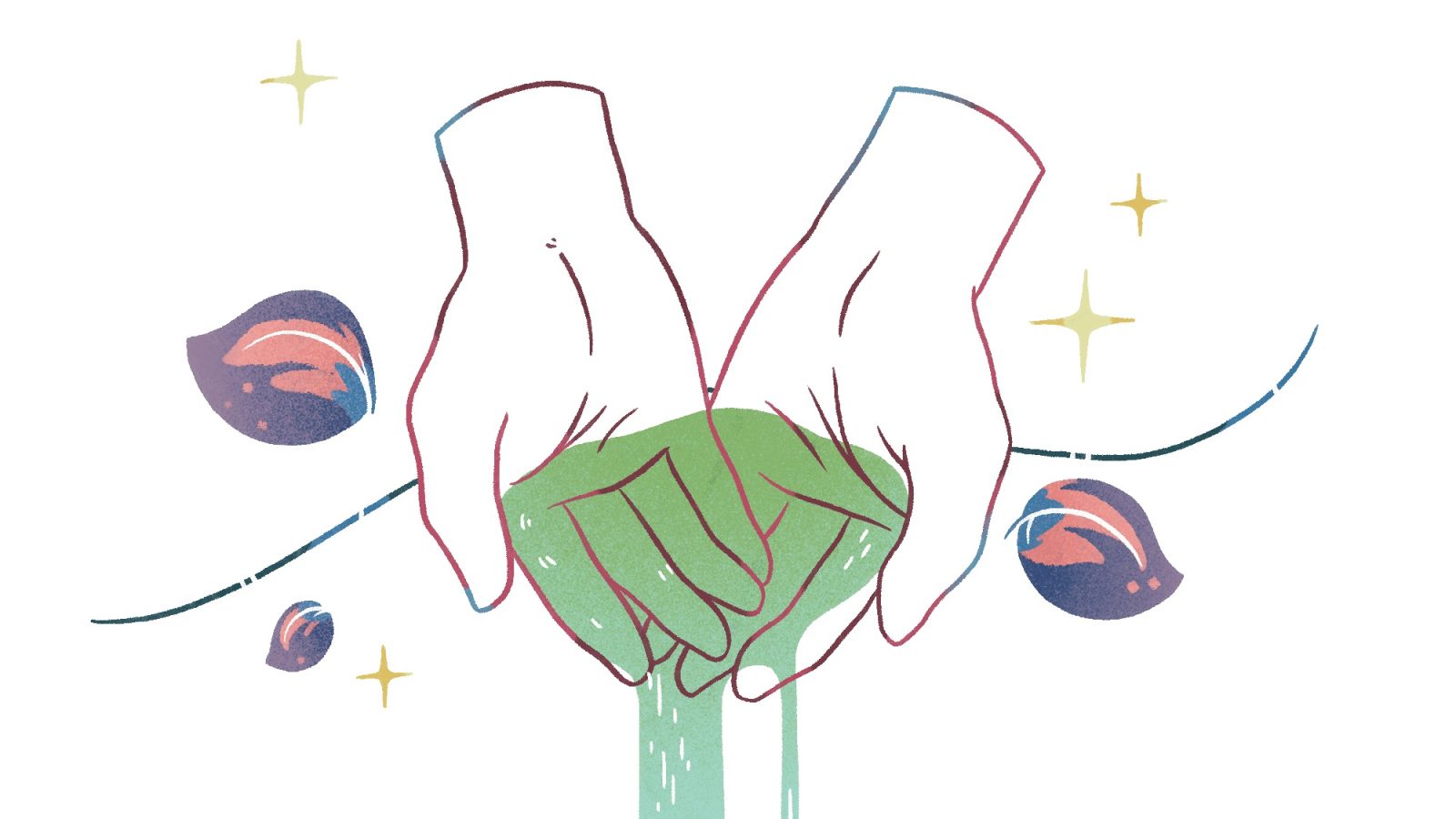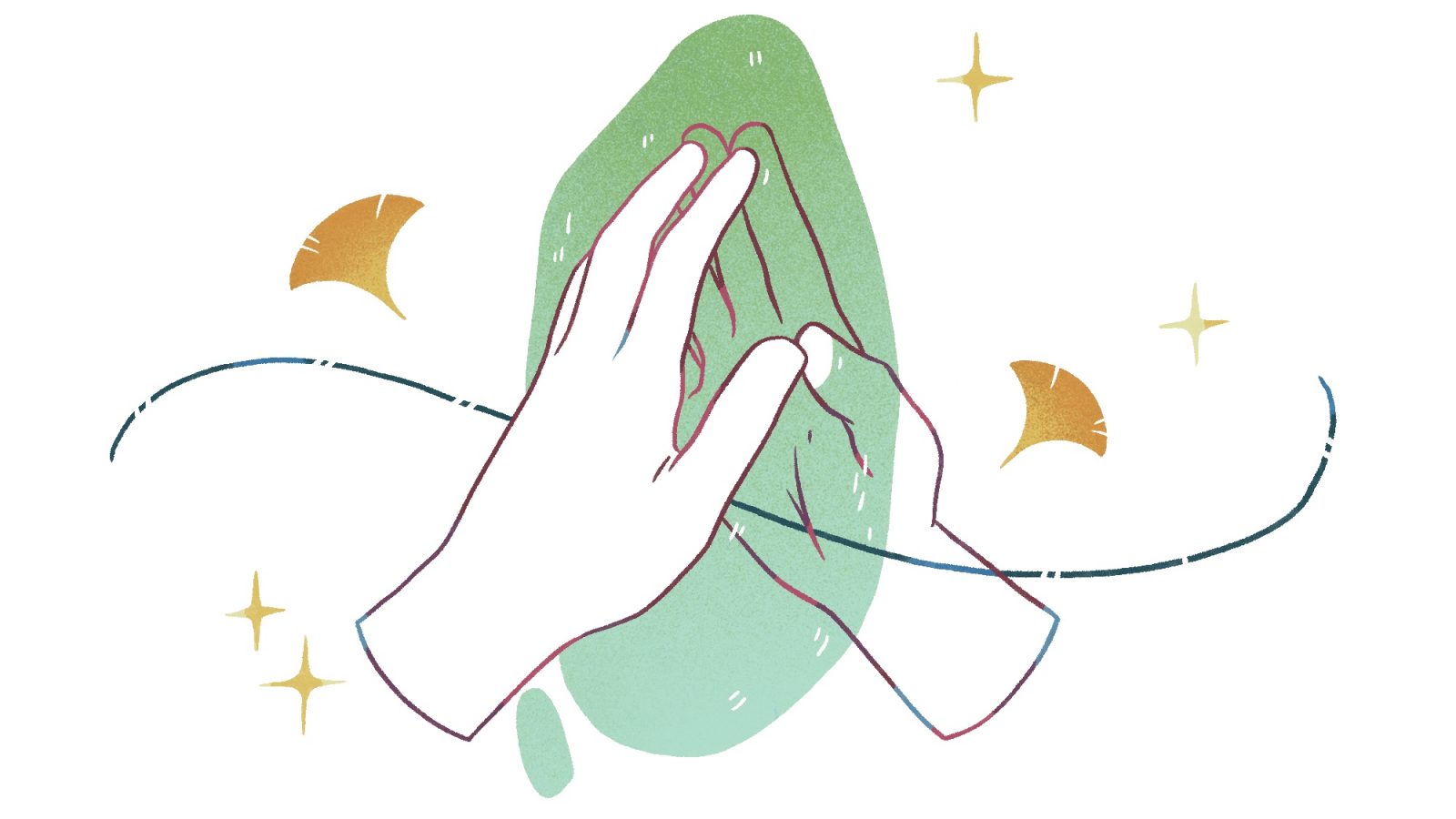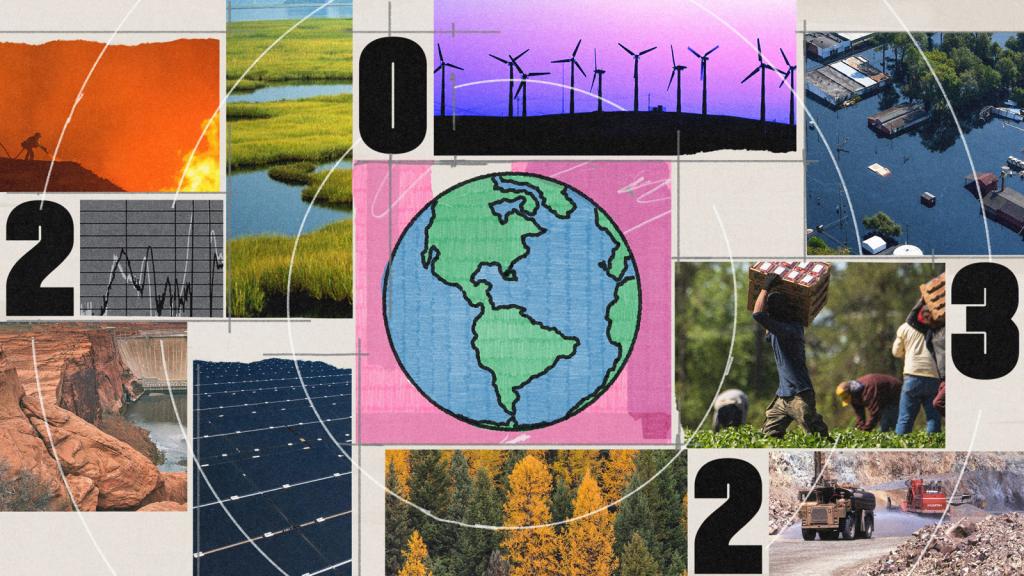We live in a time of great turmoil, one marked by a pandemic, deepening economic inequality, and a rapidly changing climate. Yet these challenges provide an opportunity to create a more equitable, open, and sustainable society, one focused on community, cooperation, and respecting the natural world. In The New Possible: Visions of Our World Beyond Crisis, 28 activists and intellectuals provide a glimpse of what this might look like — and how we can get there. These three excerpts, which have been lightly edited for clarity, provide three calls to action.
Create a new community
“Ubuntu: The Dream of a Planetary Community”
By Mamphela Ramphele
Moments of existential crisis bear within them the ability to dream and imagine new possibilities. They contain the opportunity to see beyond the self-imposed bounds of what is possible and embrace a new horizon. COVID-19 has revealed a space where the human community can go beyond our comfort zones and reduce the risks we face together. The impact of behavioral change on the scale we have seen the last few months is shocking to many, but this shift reflects the untapped capacity of human beings to change in response to an existential threat.
The extensive behavioral changes have been about more than personal survival, such as wearing protective masks and gloves. They have unleashed a reservoir of compassion and reaching out to those around us in distress, those who are in need of food, care, and protection. The “we are in this together” sentiment has been widely shared, especially in the early days and weeks of the pandemic. We showed up with the best face of humanity: generosity and solidarity.
I suggest that as we draw from the well of generosity and solidarity within us, we accept an invitation to reclaim the essence of our “humanness.” This essence lies deep in the souls of each living human being. Kofi Opoku, an African scholar and elder descendant of the Akan people of Ghana, expresses this more eloquently:
“The concept of human beingness, or the essence of being human, termed Ubuntu in the Bantu languages of Africa, is central to African cultures and religious traditions. It is the capacity in African culture to express compassion, reciprocity, dignity, harmony, and humanity in the interests of building and maintaining community.”
Mutombo Nkulu-N’Sengha, another African scholar of the Democratic Republic of the Congo, elaborates further to show how this concept finds resonance in the wisdom of other cultures across the globe:
“Bumuntu is the African vision of a refined gentle person, a holy person, a saint, a shun-tzu, a person of ado, a person of Buddha nature, an embodiment of Brahman, a genuine human being. The man or woman of Bumuntu is characterized by self-respect and respect for other human beings. Moreover, he/she respects all life in the universe. He/she sees his/her dignity as inscribed in a triple relationship: with the transcendent beings (God, ancestors, spirits), with all other human beings, and with the natural world (flora and fauna). Bumuntu is the embodiment of all virtues, especially the virtues of hospitality and solidarity.”
The core of the African concept of Ubuntu is that one cannot be a complete human being without the reciprocal affirmation of other human beings — umntu ngumtu ngabantu. The Akan of Ghana would say Onipa na oma onipa ye onipa: It is a human being who makes another person a human being.
The often quoted “I am because you are” is pregnant with the profound meaning of the generative essence of being human:
- We are endowed with a divine spark that never dies because it is connected to the source of all life. “The dead are never dead.” Our ancestors are forever part of us.
- Humans are social beings. We are wired to be with others, to nurture and shape who we are, and to make sense of our world with one another.
- Our personalities are shaped by what those close to us affirm or sanction. We are whole and endowed with the potential for right and wrong. We are choice-making beings who are socialized to seek what is right.
We have the capacity to express compassion, reciprocity, dignity, self-respect, and respect for others. These qualities are inherent in us and define our human beingness.
Harmonious relations within family, community, and society are expressions of character beyond an individual person. The individual is both shaped by and shapes relationships with others to sustain life beyond the self. This is the expansive aspect of the “I am because you are.”
Our human connectedness goes beyond present relationships. We are inextricably related to our ancestors, who continue to live in present generations as guiding spirits. We stand as bridges to future generations who may still be carried as seeds in our bodies and who arrive as children born into this unending web of intergenerational connectedness.
The multiple planetary emergencies facing us today are reflections of our deviant behaviors as a human community. We have strayed from Ubuntu/Suban/Iwa. We have fallen short of the expectations of the Ubuntu values in our management and use of nature’s resources — hence the planetary emergencies that are upon us. Our conflict-ridden social relationships and exploitative approaches diverge from the values that embody self-respect and respect for all life in the universe. We have severed the inextricable links and interdependence between ourselves, others in the human community, and the whole of nature.
The question we face now is: Having glimpsed the greatness of our inner capability to return to the source of our being, are we ready to reimagine our relationships as humans with all life on Mother Earth? Could we dare to dream ourselves into a planetary community that can live in harmony as interconnected and interdependent beings?
Our COVID moment offers us an opportunity to rediscover who we are as a human community. The slowing down of our frenetic, consumption-driven lifestyles has enabled us to look deep into ourselves as a human race. It is a moment that may well go down in history as a turning point for us to come to grips with who we really are as human beings in the larger scheme of our world. This is a necessary process for reclaiming our human beingness.
The resurgence of racism across the globe is an indictment against us as a global community. The science we have accumulated and practice affirms the Ubuntu notion that there is only one race: the human race. Racism is perpetuated by our willful ignorance and is used to justify a system of color-coded marginalization of those we “other” to promote avarice and inequity. COVID as an equal opportunity invader has challenged us into understanding that we are part of a single human community that has the capacity to work together for the common good of all people and our planet.
Ubuntu, the recognition that “I am because you are,” is the horizon of possibility before us. We need to continue this journey and travel deep into our beings, where we are connected to one another and to those who have gone before. We need to pay due reverence to the spark of life inside each of us, and continually raise our consciousness to the sacred light of life within us. This sacred light calls us to reflect deeply on our collective responsibility to shape a future worthy of those yet to be born.
Mamphela Ramphele is a South African human rights activist, physician, social anthropologist, and businesswoman. She leads transformative initiatives as a cofounder of ReimagineSA and co-president of the Club of Rome.
Create a new economy
“Building an Economy of Well-being and Indigenomics”
By Mark Anielski
“Indigenomics” is a word recently coined by Carol Anne Hilton, a Canadian Indigenous economist and business leader. Carol Anne is restoring an ancient understanding of economies unique to Indigenous cultures around the world. Indigenomics sees all things as interrelated: plants, animals, people, and ecosystems.
Each person and the community as a whole are seen as sacred circles (a “medicine wheel”). Indigenomics sees all assets as shared amongst the members of a community. The vision of the potlatch — an annual ceremony of sharing in the abundance of individual family or clan material wealth with other families — reflects the abundance witnessed in nature. The potlatch is a kind of break on the incipient threat and anxiety of scarcity and a potential threat of greed. Contrast these images with that of the linear models of debt and GDP.
Indigenous laws — similar to natural laws defined in Western economies — guide decision-making and determine what assets are vital to a good life (well-being). Natural laws, including the laws of water, were mostly upheld by the women of Indigenous communities. In addition to natural laws, spiritual laws formed the values and virtue foundations of these communities — though they were never codified.
Working with Indigenous communities in Canada, I envision restoring the original elaborate systems of economic exchange and governance that allowed the millions of Indigenous cultures on Turtle Island (North America) to thrive and flourish for 10,000 years. A remnant of these wisdom traditions still exists despite efforts to extinguish the “Indian” spirit and people. Building accounting and governance systems on a solid foundation of Indigenous values, principles, and laws is fundamental to good governance. It is congruent with the notion of a well-being–based economy and an ecological civilization.
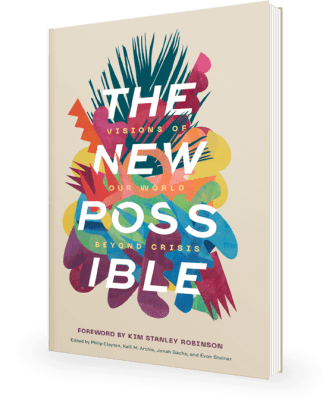
Courtesy of Cascade Books
Wealth (defined as well-being) is consistent with an Indigenomics view of economies. From an Indigenous perspective well-being considers the mental, physical, emotional, and spiritual well-being of individuals, families, and the community as a whole. From an Indigenomics perspective, all wealth or well-being is considered to have originated from the Creator or God. In every ceremony and meeting an elder acknowledges that life is a gift of the Creator. Ownership or property rights by individuals is incompatible with the Indigenous view of shared responsibility. The Indigenous view emphasizes the stewardship of the total or genuine wealth of a nation or community, in harmony with Mother Earth or nature.
All conditions of well-being and assets are seen as an integrated whole requiring a holistic framework for measuring progress. Measures of wealth from an Indigenomics perspective includes a balance of quantitative and qualitative (or subjective) measures of well-being. Again, this points to the importance of accounting for wealth according to the original definition, namely measuring the well-being conditions of the assets that contribute to the long-term well-being of an enterprise, a community, or a nation. Ironically, virtually every government at any level (federal, provincial, or municipal), including First Nations, fails to produce a comprehensive asset balance sheet that would report the well-being conditions of genuine wealth of the community.
This more comprehensive definition of wealth and wise stewardship requires an integral/holistic framework that recognizes the relationality of all assets. All assets are interconnected, in relationship, and work together to cultivate a condition of flourishing. New visual images and presentations of well-being (data using circle graphs or diagrams) provide a useful way to represent these indicators and data. It helps showcase the interconnectivity and mutuality of a nation’s assets and the relationship between indicators of well-being.
An economy of well-being is within our grasp. COVID-19 and its economic repercussions represent open space to explore a better global economic system of Indigenomics based on our yearning for a full and happy life. We must leave our debt straight-jacket behind. This requires a global dialogue about alternative money systems without debt, founded on the pragmatic ideas of an ecological civilization modeled after natural ecosystems. Natural ecosystems epitomize resilience, homeostasis, restoration, mutuality, and harmony. They repel monocultures and egoism, and embrace diversity.
COVID-19 gives us an unfiltered look at our current economics and calls us to come up with a new system of values. We must realize that we are connected to each other and unite our powers and enliven new movements.
I would like to propose an even grander aspiration. I sense a deeper yearning for what I envision as a civilization of love. The word “love” is as complex as well-being, but I believe the fundamental principle of love is “caring for the well-being of another” (including the environment). A civilization of love is founded on a common human characteristic of compassion, empathy, and altruism. Of course, this runs counter to the neoliberal values of capitalism that see humans as egocentric, hedonistic, and materialistic. The ultimate building block of any economy and civilization is love.
Mark Anielski is a Canadian economist, author, and expert in measuring the happiness and well-being of communities and businesses. He is the author of The Economics of Happiness: Building Genuine Wealth and An Economy of Well-being: Practical Tools for Building Genuine Wealth and Happiness.
Create a new story
“Telling a New Story”
By David C. Korten
Humans are distinctive among Earth’s species. We organize around shared cultural stories of our origin, nature, and purpose. These stories become the lens through which we see our world. They help us define the values and institutions that mold our relationships with one another and the Earth. The societies we have imagined, dreamed, and built range from being characterized by loving cooperation to ones characterized by violent competition. These diverse results reveal the power of story. They explore the extraordinary range of human possibility and plumb our potential to choose our future.
Get our story right, and we flourish together in the service of life. Get it wrong, and we become an existential threat to ourselves and to the Earth that graciously birthed and nurtures us. At present we live in the grip of a deeply flawed story. To change the situation, we must find our way to an authentic narrative. We need a story informed by traditional wisdom, the world’s great religious traditions, and the leading edge of science.
Humans have long dreamed of a thriving world filled with communities that offer ecologically balanced and spiritually fulfilling lives. Africans move within a spiritual heritage of Ubuntu, often translated as “I am because you are.” The Quechua peoples of the Andes talk about it as sumac asway. It translates into Spanish as vivir bien and into English as “good living.” Bolivia and Ecuador have etched this concept into their constitutions. China has written it into its constitution as a commitment to an ecological civilization. In 2015, the Parliament of the World’s Religions issued a Declaration on Climate Change that closed with these words: “The future we embrace will be a new ecological civilization and a world of peace, justice, and sustainability, with the flourishing of the diversity of life. We will build this future as one human family within the greater Earth community.”
Far from being a call to sacrifice, these challenging times call us to actualize the potential of our human nature and our deep inclination to love and to care for one another and the Earth.
Together we can embrace the requirement to significantly reduce total human consumption. We
can choose our current moment as an opportunity to relieve ourselves and the Earth from the enormous environmental and social burdens imposed by war, obsessive materialism, planned obsolescence, and auto dependent infrastructure that separates us from one another and nature.
Even if GDP and corporate profits decline, this need not be our primary concern as long as we correct the institutional flaws. In a system designed to crash if money does not continuously flow from the poor to the rich, we must see our situation for what it is. We can refuse this hostage situation in which no one ultimately wins, where all remain captive to GDP. We can say no to these mechanisms of manipulation.
Humanity’s existential crisis traces — at least in part — to mainstream economics: a political ideology posing as an objective science, with generous financial support from the powerful institutions since the mid-20th century.
Because this ideology has been presented in most of the world’s universities as uncontested truth, generations of leaders have been taught to believe that financial assets are the measure of a society’s worth. Therefore, supporting growth of these assets has become accepted as a defining responsibility of leaders of society’s most powerful institutions. In the United States, we assess the health of the economy by how fast GDP and the Dow Jones Industrial Average are growing. We rarely ask how people or the Earth are doing.
We are assured there is no need for concern about the resulting inequality because the invisible hand of the market will distribute benefits according to merit, and all will eventually enjoy limitless material abundance — if they have earned it. It is shocking that a story so obviously flawed could be allowed to harm so many for so long without having sparked rebellion and corrective action. It is all too rare, however, that we educate our young to question the stories that define our lives and our communities in this way. Such challenges only arise if people venture outside of their communities and engage with those who view the world through different stories.
Successfully transforming our relationships with one another and the Earth requires a new economics grounded in an accurate and compelling story. That story must be one that focuses our attention on securing the well-being of all people and Earth, treats money as a tool rather than a purpose, and reminds us that most of the real wealth of the living Earth is the product of all of life’s labor. Once we get our story right, we have a chance to get our future right.
David C. Korten is a political activist, author, and former professor at the Harvard Graduate School of Business and the Harvard Graduate School of Public Health. He also is the founder and president of the Living Economics Forum. His books include Change the Story, Change the Future: A Living Economy for a Living Earth and When Corporations Rule the World.
